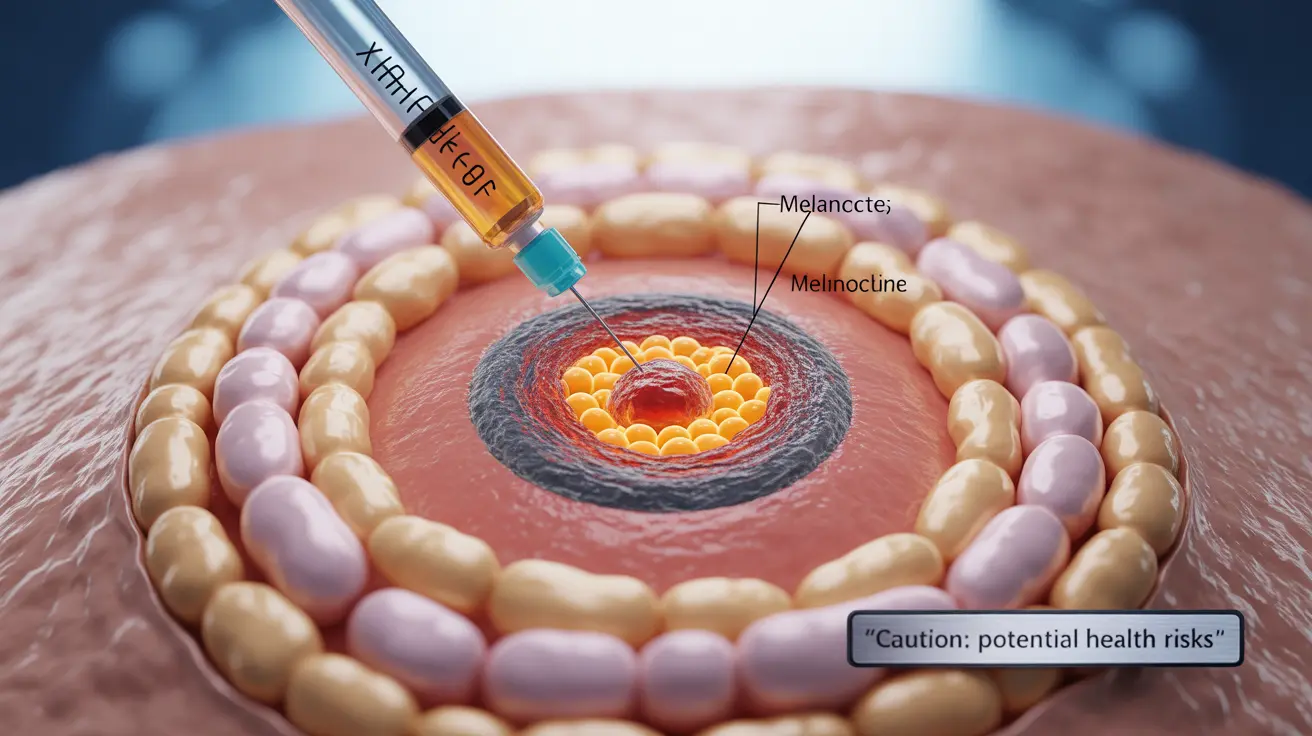Tanning injections have gained attention as a method for achieving bronzed skin without sun exposure. These synthetic hormones, particularly melanotan, promise a year-round tan, but their use comes with significant health and safety concerns that everyone should understand.
As interest in these products grows, it's crucial to examine the science behind tanning injections, their potential dangers, and safer alternatives for achieving your desired skin tone. This comprehensive guide will help you make an informed decision about these controversial treatments.
How Tanning Injections Work
Tanning injections typically contain synthetic melanocyte-stimulating hormones (MSH), primarily melanotan I or II. These compounds work by stimulating the body's melanocytes – specialized cells that produce melanin, the pigment responsible for skin color.
When injected, these substances trigger increased melanin production throughout the body, resulting in darker skin tone. This process occurs regardless of sun exposure, though many users combine the injections with UV exposure to enhance the tanning effect.
Safety and Legal Status
Tanning injections are not approved by the FDA for use in the United States. Their sale and distribution for tanning purposes is illegal, though they're often marketed as "research chemicals" to circumvent regulations.
The lack of regulation means there's no quality control over these products, leading to concerns about:
- Contaminated or impure ingredients
- Incorrect dosing
- Unknown manufacturing conditions
- Potential presence of harmful substances
Health Risks and Side Effects
Using tanning injections can lead to numerous concerning side effects and health complications:
- Nausea and vomiting
- Severe headaches
- Unexpected changes in blood pressure
- Skin inflammation and rashes
- Darkening of moles and freckles
- Sexual side effects
- Possible increased risk of skin cancer
Of particular concern is the potential for tanning injections to mask or alter the appearance of potentially cancerous skin changes, potentially delaying critical medical diagnosis and treatment.
Safer Alternatives for Tanning
Instead of risking your health with unauthorized tanning injections, consider these safer alternatives:
- Self-tanning lotions and mousses
- Professional spray tans
- Gradual tanning moisturizers
- Bronzing powders and makeup
- Tinted body lotions
These options provide similar aesthetic results without the serious health risks associated with injectable tanning products.
Frequently Asked Questions
What are the health risks and side effects of using tanning injections like melanotan?
Tanning injections can cause numerous side effects including nausea, headaches, blood pressure changes, skin inflammation, and potentially dangerous changes in existing moles. Long-term risks may include increased skin cancer risk and other unknown health complications due to lack of proper testing and regulation.
Are tanning injections such as melanotan safe or legal to use?
Tanning injections are not FDA-approved and are illegal to sell or distribute for tanning purposes in the United States. They are considered unsafe due to lack of regulation, quality control, and proper medical testing.
Can tanning injections increase the risk of skin cancer or cause changes in moles?
Yes, tanning injections may increase skin cancer risk by affecting melanin production and causing changes in moles and skin pigmentation. These changes can also make it harder to detect potential skin cancers early.
What are safer alternatives to achieve a tan without using tanning injections?
Safe alternatives include self-tanning lotions, professional spray tans, gradual tanning moisturizers, and bronzing cosmetics. These products provide similar aesthetic results without the health risks associated with injectable tanning products.
How do tanning injections like melanotan work to darken the skin?
Tanning injections contain synthetic melanocyte-stimulating hormones that trigger increased melanin production in the skin cells. This artificially stimulated process causes skin darkening throughout the body, with or without sun exposure.




